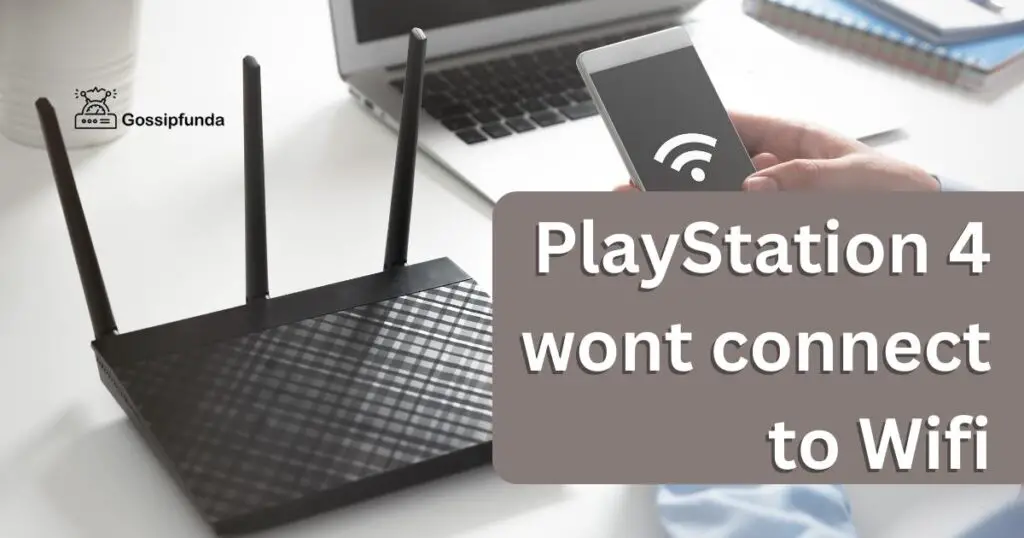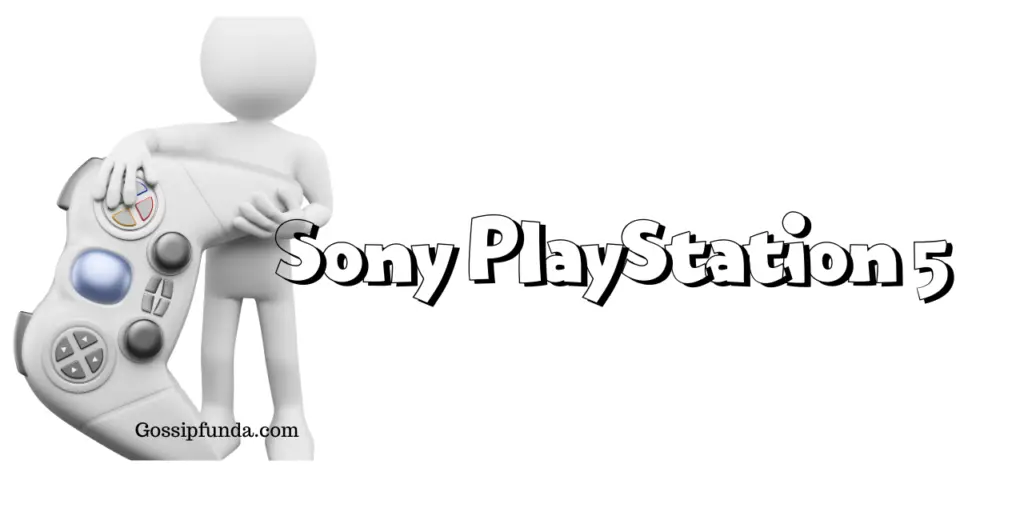Gaming enthusiasts, we’ve all been there. Excitedly booting up our PS4, controller in hand, eager for an immersive experience. Suddenly, there’s a hiccup. The screen remains stagnant, hinting at a connection issue. Frustrating, isn’t it? Your PlayStation 4 refuses to connect to WiFi. You might think, “Why now?” or “What went wrong?” It’s an annoyance that dampens the mood, especially when you’re ready to conquer new worlds or face off against online rivals. Thankfully, you’re not stranded in this digital desert alone. Dive into this guide, and you’ll find not just the reasons but also the remedies. Together, let’s ensure that your next game session isn’t just good; it’s great. Join us on this tech-savvy journey and reignite your PS4’s online prowess.

Possible Reasons Behind the issue
First, understanding the root of the problem is key. There are multiple reasons why your PS4 might not connect. It could be a router issue, PS4 settings misconfiguration, or even external interference. There could be multiple reasons causing your Playstation 4 to face WiFi connectivity problems:
- Router and Modem Concerns: Often, outdated router firmware or momentary glitches can impact the connection.
- PS4 Network Settings Misconfiguration: Incorrect details in the PS4’s network settings can obstruct connectivity.
- Environmental Interference: Other electronic devices, thick walls, or even certain household appliances can create wireless interference.
- Software Update Blockages: Your PS4 might be awaiting a crucial software update that’s causing the connection delay.
- Hardware Malfunction: Occasionally, the PS4’s internal WiFi card might experience issues or damage.
- ISP or Service Outages: Sometimes, the issue might be with the Internet Service Provider itself, causing the PS4 to stay offline.
- Password Mismatch: A simple reason could be a change in the WiFi password, leading the PS4 to fail authentication.
By identifying the specific reason, you can address the root of the problem and restore your gaming adventures swiftly.
Read more: Playstation error code su-42481-9
How to fix Playstation 4 wont connect to Wifi?
Fix 1: Addressing Router and Modem Concerns
Your router and modem serve as the gateway between your devices and the vast world of the internet. When there’s an issue here, it can significantly impact the PS4’s ability to connect. Here are detailed steps to address this:
- Restart Your Router and Modem:
- Unplug both devices from the power source.
- Wait for at least 30 seconds to let them fully reset.
- Plug them back in. Wait for all lights to stabilize and indicate a successful connection.
- Update Router Firmware:
- Log in to your router’s web interface using a computer.
- Navigate to the ‘Update’ or ‘Firmware’ section. It’s usually found under settings or advanced settings.
- If an update is available, follow the on-screen instructions to install.
- Check for Bandwidth Issues:
- Ensure no other devices are hogging the bandwidth. Streaming HD videos or downloading large files can consume significant bandwidth.
- Consider pausing or stopping such activities when using your PS4.
- Change WiFi Channels:
- Routers often default to certain channels. By changing the WiFi channel, you might find one less congested.
- Access the router’s web interface.
- Go to the ‘Wireless’ section and select a different channel from the dropdown menu. Channels 1, 6, and 11 are commonly recommended.
- Positioning Your Router:
- Ensure your router is placed in a central location in your home.
- Avoid placing it near thick walls or electronic devices that can cause interference.
- Elevating the router off the ground can also improve signal strength.
- Use an Ethernet Cable:
- If WiFi is continually problematic, consider connecting your PS4 directly using an Ethernet cable. This often provides a more stable connection.
By meticulously going through these steps, you can likely eliminate any router or modem-related concerns that prevent your PS4 from connecting to WiFi. Remember, your gaming experience often relies heavily on the efficiency of these devices. Making sure they are in top shape can be a game-changer.
Fix 2: Tweaking PS4 Network Settings
Sometimes, the hurdle lies within the very system meant to provide endless entertainment. Your PS4’s network settings play a pivotal role in ensuring seamless connectivity. Here’s a deep dive into making sure they’re set up correctly:
- Check WiFi Password:
- Navigate to ‘Settings’ on your PS4 main menu.
- Select ‘Network’ and then ‘Set Up Internet Connection’.
- Choose ‘WiFi’, and when prompted, ensure the password you’ve entered is correct. A simple typo can be the culprit!
- Use Automatic Settings:
- When setting up the internet connection, choose the ‘Easy’ setup method. This allows your PS4 to automatically configure the best settings.
- Test Internet Connection:
- Still within the ‘Network’ settings, select ‘Test Internet Connection’. This helps identify if there’s a particular stage at which the connection is failing.
- Manually Set DNS:
- Sometimes, the default DNS servers aren’t the fastest. You can manually set them to public servers like Google’s (8.8.8.8 and 8.8.4.4).
- Go to ‘Settings’ > ‘Network’ > ‘Set Up Internet Connection’ > ‘Custom’. Follow the on-screen instructions but choose ‘Manual’ when prompted for DNS settings.
- Update PS4’s Software:
- Occasionally, the connection issue stems from outdated system software. Ensure your PS4’s software is up to date. You might need an Ethernet connection or USB drive for this if WiFi isn’t working.
- Initialize PS4:
- As a last resort, you can try initializing your PS4. It resets the console to its default settings. However, this will delete all data on the system, so ensure you’ve backed up any essential data.
Tinkering with these settings can often fix those pesky connectivity issues. Always remember to proceed with caution and make a note of original settings, especially when making manual changes. A smooth online gaming experience awaits on the other side of these adjustments.
Fix 3: Addressing Environmental Interference and Hardware Challenges
Your PlayStation 4’s surrounding environment and its own internal hardware can be sources of WiFi connection issues. Let’s explore steps to mitigate these challenges:
- Eliminate Physical Barriers:
- Ensure your PS4 isn’t placed inside a closed cabinet or surrounded by thick walls. These can act as barriers for WiFi signals.
- Distance from Router:
- Bring the PS4 closer to the router, if possible. This might enhance the signal strength and stability.
- Limit Interference from Other Devices:
- Devices like cordless phones, microwaves, and baby monitors can cause interference. Either move these devices away from the PS4 and router or minimize their usage during gaming sessions.
- Inspect the PS4’s WiFi Antenna:
- Sometimes, the internal antenna of the PS4 might be damaged or not seated correctly. If comfortable, carefully open the PS4 (keeping warranty considerations in mind) and inspect the WiFi antenna. If it seems damaged, consider replacing it or seeking professional assistance.
- Switch Frequency Bands:
- If your router supports both 2.4GHz and 5GHz, try switching between them. The 5GHz band is faster but has a shorter range, while the 2.4GHz band may be more crowded but offers a broader range.
- Ensure Ventilation:
- Overheating can lead to reduced performance and connectivity issues. Ensure your PS4 is in a well-ventilated area and free of dust.
- Use WiFi Extenders:
- If your home is large or has multiple floors, consider using a WiFi extender. This amplifies the signal and ensures that your PS4 receives a robust connection, even from a distance.
Understanding and optimizing the environment around your PS4 can be pivotal in ensuring uninterrupted gaming sessions. By considering the above factors, you can transform a sporadic connection into a steady and strong one, paving the way for countless hours of gaming fun.
Fix 4: Exploring Advanced Network Techniques and Solutions
Sometimes, a deep dive into advanced networking solutions might be the key to unlocking stable WiFi for your PS4. Let’s journey into these advanced fixes:
- Port Forwarding:
- Some games and applications require specific network ports to function correctly.
- Log in to your router’s web interface.
- Locate the ‘Port Forwarding’ section. Add the required ports for PS4 (usually provided by the game or app developer).
- Enable UPnP (Universal Plug and Play):
- UPnP allows devices on your network to automatically configure the router settings.
- Access your router settings and find the UPnP option. Turn it on if it’s not already.
- Assign a Static IP to Your PS4:
- This prevents IP address conflicts with other devices.
- Go to ‘Settings’ on your PS4, then ‘Network’. Note down the IP address, subnet mask, gateway, and DNS.
- Next, set up a static IP in your router settings for the PS4 using the details you noted.
- DMZ Settings:
- As a last resort, place your PS4 in the DMZ (Demilitarized Zone) of your router. This bypasses most firewall restrictions.
- Beware: DMZ exposes your device to all incoming traffic without any filtering. It’s less secure, so use it only if necessary and after understanding the risks.
- Check for ISP Restrictions:
- Sometimes, the ISP (Internet Service Provider) may have restrictions or downtimes.
- It’s wise to check with them if there are any ongoing issues or if they have set restrictions that might affect gaming consoles.
- Invest in Quality of Service (QoS):
- Many modern routers offer QoS settings. This allows you to prioritize traffic for specific devices or applications.
- Prioritize your PS4 in the QoS settings to ensure it gets the bandwidth it needs.
- Update Router’s Security Protocols:
- Outdated security protocols can cause connection problems.
- Update your router to use WPA3 if available. If not, WPA2 is still a solid choice. Avoid WEP as it’s outdated and less secure.
Venturing into the world of advanced network settings can seem daunting, but it’s often where the solutions lie for persistent connectivity challenges. Arm yourself with patience and a bit of tech curiosity, and your PS4 will soon be running flawlessly on your WiFi network.
Fix 5: System Software and Application Diagnostics
Beyond the physical world and network intricacies, sometimes the software within the PS4 itself may be the heart of the issue. Let’s dive deep into potential software-related solutions:
- Clear the PS4 Cache:
- Just like computers, your PS4 stores temporary files. Clearing them might solve connection hiccups.
- Completely power off your PS4 (not rest mode).
- Unplug from the power source and wait for about 5 minutes. Reconnect and power on.
- Review Downloaded Games and Apps:
- Corrupted game files can occasionally disrupt the system.
- If the issue began after downloading a new game or app, consider deleting and reinstalling it.
- Update Individual Games:
- Sometimes, specific games have updates that improve connectivity and fix bugs.
- Highlight the game on the main screen, press the options button on the controller, and select ‘Check for Update’.
- Rebuild PS4 Database:
- This is akin to defragging a computer and can resolve many issues.
- Turn off the PS4. Hold the power button until you hear two beeps: one immediately and one after 7 seconds.
- Connect a controller with a USB cable and press the PS button. In the Safe Mode menu, select ‘Rebuild Database’.
- Restore Default Settings:
- This will reset all settings to their default without deleting your data.
- Navigate to ‘Settings’ > ‘Initialization’ > ‘Restore Default Settings’ and follow the prompts.
- Check for System Software Updates:
- Ensure your PS4’s system software is up-to-date. Sometimes, newer updates fix known connectivity bugs.
- Go to ‘Settings’ > ‘System Software Update’ and install any available updates.
- Safe Mode Internet Connection Test:
- Boot your PS4 in Safe Mode (as described above).
- Select ‘Test Internet Connection’. This bypasses some software processes and checks the basic internet connection.
By thoroughly inspecting and tweaking the software components of your PS4, you bring it one step closer to optimal performance. Remember, regular maintenance and updates are key to a smooth and immersive gaming experience.
Fix 6: External Hardware and Peripheral Checks
Sometimes, it’s the external components that might be creating a bottleneck in your PS4’s ability to connect seamlessly to WiFi. Let’s explore this aspect:
- External Hard Drive Interference:
- If you have an external hard drive connected to your PS4, it might cause interference.
- Disconnect the external drive and check if the WiFi connection stabilizes.
- USB Device Interference:
- Devices like USB hubs, cooling fans, or charging stations might interfere with the WiFi signal.
- Unplug all USB devices and observe if there’s any improvement in connectivity.
- Check Antenna Wire:
- The PS4 has an external antenna wire. Ensure it isn’t damaged or disconnected.
- If it seems faulty, consider getting a replacement.
- Inspect Power Supply:
- A malfunctioning power supply can indirectly affect the system’s performance, including WiFi connectivity.
- If your PS4 shuts down unexpectedly or has erratic behaviors, it might be worth inspecting or replacing the power unit.
- Try a Different HDMI Port:
- This might seem unrelated, but some users have reported better system performance, including improved WiFi connectivity, by changing the HDMI port on their TVs.
- Use a WiFi Analyzer:
- Tools or apps that analyze WiFi can help you understand signal strength and interference sources.
- Position your PS4 in a location with optimal signal strength as per the analyzer’s feedback.
- Consider External Network Adapters:
- If all else fails, you might benefit from an external network adapter for your PS4. Some adapters are designed to enhance the WiFi reception of gaming consoles.
It’s fascinating how elements that seem unrelated to WiFi can have such profound impacts on connectivity. Being observant and methodical in addressing potential hardware and peripheral concerns can drastically enhance your gaming sessions, ensuring they’re uninterrupted and smooth.
Fix 7: Alternate Connection Methods and Monitoring
Exploring other avenues of connection and keeping a vigilant eye on your network’s health might be the solution you need. Here’s how you can venture into these territories:
- Switch to Wired Connection:
- If WiFi seems persistently unreliable, consider using an Ethernet cable. Wired connections often offer stability and faster speeds.
- Use a Gaming VPN:
- Virtual Private Networks (VPNs) designed for gaming can enhance connection speed and stability.
- However, choose a reputable VPN provider. Some can slow down your connection if not optimized for gaming.
- Monitor Bandwidth Consumption:
- If multiple devices are connected to your network, they could be hogging the bandwidth.
- Consider apps or router settings that monitor bandwidth usage. Limit high-usage activities during gaming sessions.
- Change WiFi Channel:
- Routers often have multiple channels. Some might be congested, especially in densely populated areas.
- Access your router settings and switch to a less congested channel. Tools like WiFi analyzers can help identify the best channels.
- Alternate DNS Service:
- Instead of your ISP’s default DNS, try services like Google DNS or OpenDNS. They might offer better speed and reliability.
- Adjust these settings in your PS4’s network configurations.
- Check for External Interferences:
- Neighboring WiFi networks or electronic devices can interfere with your signal.
- Try shifting the position of your router or console to a location with minimal interference.
- Regularly Restart Router:
- Like any device, routers can benefit from a regular restart. It refreshes the connection and clears potential hiccups.
- Make it a routine to restart your router at least once a week.
By broadening your approach and incorporating routine checks, you’re not just fixing a present issue, but also future-proofing your connection. Gaming is all about immersion, and a stable connection ensures that your adventures remain uninterrupted.
Fix 8: Consultation, External Help, and Alternative Solutions
When all traditional methods have been exhausted, sometimes looking outside the box or seeking expert assistance becomes essential. Here’s what you can try:
- Contact PlayStation Support:
- Sony’s PlayStation Support team can provide guidance specific to your console. They might be aware of recent issues or solutions not broadly publicized.
- Update Router Firmware:
- Your router’s manufacturer may release updates that enhance performance and fix bugs.
- Visit the manufacturer’s website or access the router’s web interface to check for and apply any available updates.
- Seek Expert Assistance:
- Consider consulting a local tech expert or technician. A fresh pair of eyes might spot issues you missed.
- Join Online Forums:
- Online forums and communities, like Reddit or the PlayStation forums, often discuss common issues. You might find custom fixes or workarounds from other users experiencing the same problem.
- Consider a New Router:
- If your router is old or not up to modern gaming standards, it might be time for an upgrade. Research routers that are optimized for gaming.
- Check Warranty and Servicing:
- If your PS4 is still under warranty, consider sending it for official servicing. There might be underlying hardware issues not easily identified at home.
- Test with a Different PS4:
- If possible, connect a different PS4 to your WiFi. If it works without issues, the problem might be specific to your console.
- Document and Report:
- Keep track of when the issues occur, any patterns, and error messages. This documentation can help experts or support teams diagnose the problem faster.
Tackling connectivity issues can sometimes be a journey rather than a quick fix. But with persistence, research, and a willingness to seek help, you’ll ensure your PS4 offers the best gaming experience possible. Remember, every challenge faced is just a level up in the grand game of tech troubleshooting!
Preventing WiFi Connectivity Issues: Expert Tips
Ensuring a glitch-free gaming experience often lies in proactive measures. Here are some expert-recommended preventive tips to keep WiFi connectivity issues at bay:
1: Secure Your WiFi Network
A secure WiFi network not only safeguards your data but also prevents unauthorized access that might disrupt your gaming. Take these steps:
- Change Default Passwords: Replace default router and modem passwords with strong, unique ones.
- Enable Network Encryption: Use WPA3 or at least WPA2 encryption to secure your WiFi network.
- Hide Network Name (SSID): Disable broadcasting your network name to add an extra layer of security.
2: Regular Maintenance
Regular upkeep of your devices can prevent unexpected connectivity troubles:
- Update Firmware: Keep your router, modem, and gaming console firmware updated to the latest versions.
- Clear Cache: Periodically clear cache on your PS4 to ensure smooth performance.
3: Optimize Network Environment
Creating an environment conducive to strong WiFi signals can work wonders:
- Position Your Router Wisely: Place your router in a central location, away from physical barriers.
- Reduce Interference: Keep electronic devices and metal objects away from the router to minimize interference.
- Elevate the Router: Place your router on a higher surface for improved signal dispersion.
4: Bandwidth Management
Balancing your bandwidth usage ensures consistent connectivity:
- Limit Bandwidth-Intensive Activities: Pause downloads or streaming on other devices during gaming sessions.
- Quality of Service (QoS): If your router supports QoS, prioritize gaming traffic to ensure a smooth experience.
5: Regular Checks
Frequent oversight helps in early detection and prevention:
- Monitor Network Health: Use apps or tools to keep an eye on your network’s performance.
- Change WiFi Channels: If you notice signal degradation, switch to a less congested channel.
6: Avoid Overloading
Prevent network congestion by optimizing device connections:
- Reduce Device Load: Disconnect devices not in use from your network to prevent congestion.
- Limit Concurrent Connections: Avoid connecting too many devices simultaneously.
7: Maintain Consistent Power
Stable power supply ensures your devices function optimally:
- Use Surge Protectors: Protect your devices from power surges by using surge protectors.
- Regular Power Cycles: Power cycle your router and modem occasionally to prevent overheating.
By proactively incorporating these preventive measures, you’re building a strong foundation for uninterrupted gaming sessions. It’s all about maintaining your digital realm, just as you would care for your real-world treasures.
Conclusion
It’s frustrating when a gaming session is halted by connectivity issues. By understanding potential causes and applying the above solutions, your PS4 should be back online in no time. Whether it’s updating your router, adjusting your PS4’s network settings, or seeking external help, there’s always a way to get back in the game. Remember, technology has its quirks, but there’s always a solution waiting just around the corner. Happy gaming!
FAQs
Your PS4 might struggle due to router issues, settings misconfiguration, signal interference, or outdated software.
Try restarting your router, adjusting network settings, updating software, and positioning your console for better signal.
Yes, devices like USB hubs or external hard drives might interfere with WiFi signals.
This could happen due to signal interruptions, bandwidth congestion, or even overheating of the console.
Absolutely, a weak WiFi signal can result in game lag, affecting your online gaming experience.
Prachi Mishra is a talented Digital Marketer and Technical Content Writer with a passion for creating impactful content and optimizing it for online platforms. With a strong background in marketing and a deep understanding of SEO and digital marketing strategies, Prachi has helped several businesses increase their online visibility and drive more traffic to their websites.
As a technical content writer, Prachi has extensive experience in creating engaging and informative content for a range of industries, including technology, finance, healthcare, and more. Her ability to simplify complex concepts and present them in a clear and concise manner has made her a valuable asset to her clients.
Prachi is a self-motivated and goal-oriented professional who is committed to delivering high-quality work that exceeds her clients’ expectations. She has a keen eye for detail and is always willing to go the extra mile to ensure that her work is accurate, informative, and engaging.



